A symbol of hope, faith and divinity since the beginning of time, light has been elaborately incorporated into various religious, cultural and traditional celebrations around the world. As a tribute to Diwali – one of the best known festivals of lights – this month we’ve compiled a list of top ten festivals that emulate its tradition of lighting up the world.
10. St. Martin’s Day
Celebrated in remembrance of Saint Martin, the patron of the poor, this event takes on a new meaning in the Netherlands where it is commemorated with lights. As the day of feasting draws to a close on 11 November each year, the night is lit up with children heading out carrying lanterns and singing songs in praise of ‘Sint-Maarten.’ Their door knocking is rewarded with candy and other sweet treats from neighbours and friends.
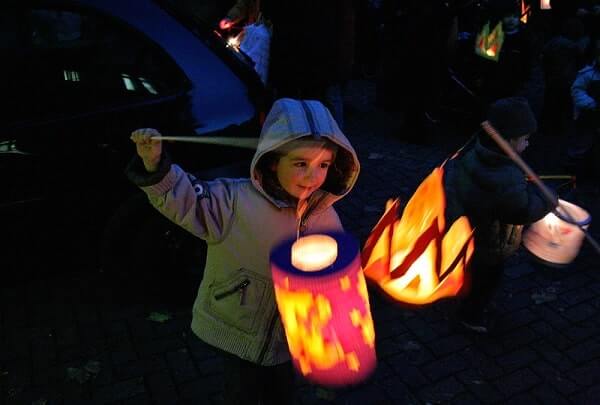
9. Kobe Luminarie
 The city of Kobe in Japan observes an annual illumination festival in December in memory of the victims of the Great Hanshin Earthquake of 1995. The devastating event left 6000 dead and many without electricity and food. Using lights to express hope and recovery for the victims has continued as a tradition ever since. The festival features hundreds of thousands of lights and hand painted lanterns, and is viewed by millions.
The city of Kobe in Japan observes an annual illumination festival in December in memory of the victims of the Great Hanshin Earthquake of 1995. The devastating event left 6000 dead and many without electricity and food. Using lights to express hope and recovery for the victims has continued as a tradition ever since. The festival features hundreds of thousands of lights and hand painted lanterns, and is viewed by millions.
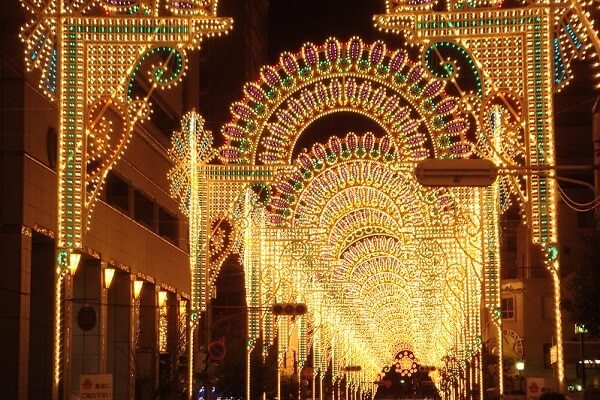
READ MORE: ‘Diwali will look different this year’ says Vic Multicultural Minister
8. Umbanda – Brazil
The people of Rio de Janeiro, Brazil head to Copacabana, Ipanema and Leblon beaches to honour the African Goddess Iemanja as the clock strikes midnight on 31 December every year. The beaches are speckled with lighted candles, and gifts of flowers and perfumes are thrown in the sea as offerings. Iemanja is revered as the Goddess of the Sea and Carnal Pleasures by the followers of the Umbanda religion, but other festival loving Brazilians join in the dancing and smoking that continues through until dawn.
7. Lantern Festival
The Lantern Festival is celebrated in China with much pomp and show to indicate an official end to the Lunar New Year celebrations. It is a festival of great significance in the Chinese calendar marked with a spectacle of lights and fireworks. Magnificent paper lanterns (usually red in colour for good luck) are set free at night to symbolise letting go of the past and ushering in new beginnings. Children head to the temples carrying lighted lanterns while solving riddles written on them.
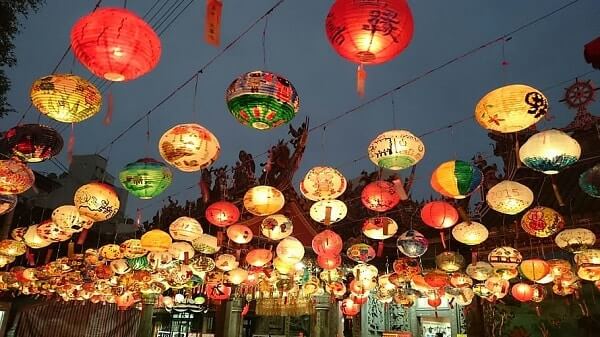
6. Santa Lucia Day
Saint Lucia’s Day is celebrated in many Scandinavian countries on 13 December to mark the winter solstice and the beginning of the Christmas season. In Sweden, the day is celebrated with lights, parades, candles and girls dressing up as Saint Lucia. Traditionally, the eldest daughter of the family rises early in the morning on the day, dresses in white, wears a crown of lighted candles and serves coffee and special buns to the rest of the family. The name Lucia is associated with light.
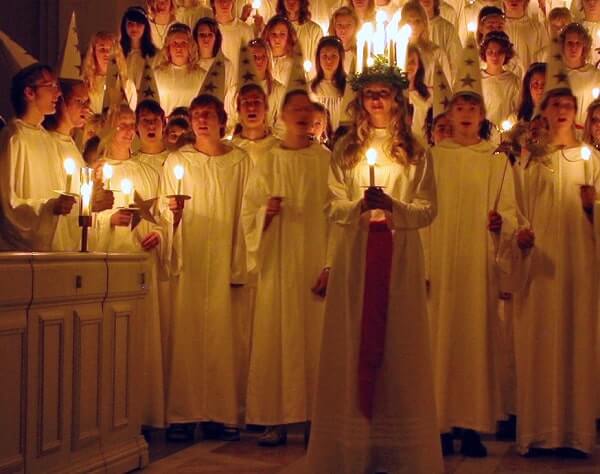
5. Loi Karathong
Held annually on the evening of the 12th lunar month, Loi Karathong is the Thai festival of lights paying homage to the water spirits. The event is observed by locals creating beautiful floating arrangements consisting of incense sticks and a candle. On the night of the full moon, people launch these arrangements in the sea, rivers, canals or ponds, making wishes as they do so. Almost all waterways in the country present a spectacular sight on the night with little bobbing lights as far as the eye can see.
4. Kwanzaa
 This week-long holiday is celebrated in honour of the culture and traditions of African descendants in America. During the festivities, candles are lit every day, gifts exchanged and a feast shared. The ritual includes the pouring of a drink as an offering to God. The main symbols of Kwanzaa are the unity cup, a candle stick holder, seven candles, a mat, the Kwanzaa flag and a poster with seven Kwanzaa principles: unity, self-determination, collective work and responsibility, co-operative economics, purpose, creativity and earth. The celebration has been observed from 26 December to 1 January every year since 1966.
This week-long holiday is celebrated in honour of the culture and traditions of African descendants in America. During the festivities, candles are lit every day, gifts exchanged and a feast shared. The ritual includes the pouring of a drink as an offering to God. The main symbols of Kwanzaa are the unity cup, a candle stick holder, seven candles, a mat, the Kwanzaa flag and a poster with seven Kwanzaa principles: unity, self-determination, collective work and responsibility, co-operative economics, purpose, creativity and earth. The celebration has been observed from 26 December to 1 January every year since 1966.
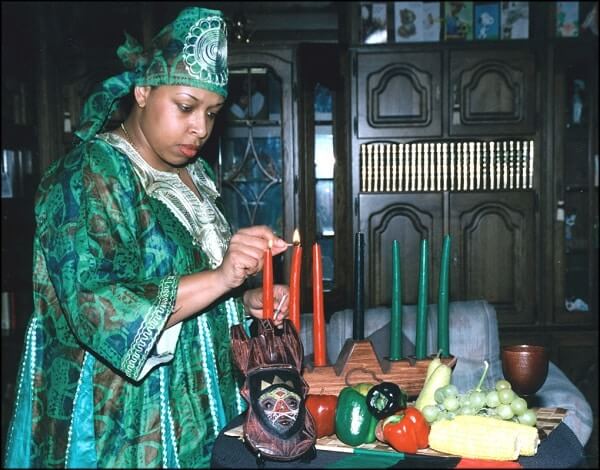
READ MORE: When the Opera House brought out its Diwali sari
3. Hanukkah
The Jewish festival of Hanukkah begins on the 25th day of the month of Kislev and ends on the 2nd day of Tevet on the Hebrew calendar. It is known as the Festival of Lights as it celebrates the historic event of the liberating of the Temple and the miracle of a lamp that burned for eight days, even though it had oil for only one. A new candle is lit on each of the eight nights of the festival to mark the miracle. Special food is prepared and gifts given to children.

2. Christmas
Christians celebrate the birth of Jesus Christ with a massive show of lights on the 25th of December every year. This is the biggest light festival celebrated in countries around the world. An explosion of lights is on display as houses, gardens and streets are illuminated with strings of lights, Christmas trees are decorated with fairy lights and candles, and log fires adorn the interiors of European homes. Festive foods, gifts and cards help spread good cheer and make this celebration complete.

1. Diwali
 Diwali, or Deepavali, is also known as the Festival of Lights, and falls on the 15th day of the Hindu month of Kartik. It is one of the major religious festivals of the world and is celebrated in October or November every year. Devotees commemorate the victory of good over evil by decorating their houses with clay oil lamps and candles, sharing sweets, buying new clothes and visiting family and friends. Although mainly a Hindu festival, it is also considered auspicious by Sikhs, Buddhists and Jains. In India today, people of all faiths join in the five-day family festivities.
Diwali, or Deepavali, is also known as the Festival of Lights, and falls on the 15th day of the Hindu month of Kartik. It is one of the major religious festivals of the world and is celebrated in October or November every year. Devotees commemorate the victory of good over evil by decorating their houses with clay oil lamps and candles, sharing sweets, buying new clothes and visiting family and friends. Although mainly a Hindu festival, it is also considered auspicious by Sikhs, Buddhists and Jains. In India today, people of all faiths join in the five-day family festivities.




